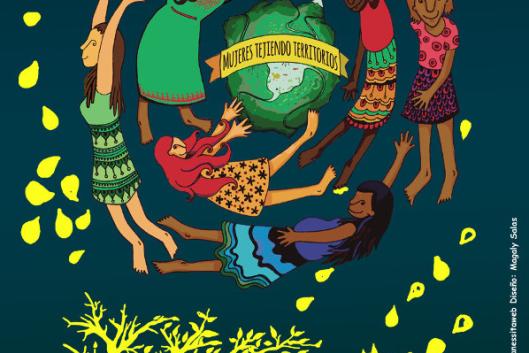The People’s Summit in Santiago, Chile was held January 25-27 as a parallel event to the summit meeting between the governments of the member countries of the European Union and the Community of Latin American and Caribbean States (CELAC).
Social justice, international solidarity and the sovereignty of the peoples were the watchwords of the social, trade union and political organizations that joined together, in parallel to the official government meetings, to hear the demands and proposals of the peoples of Latin America and Europe affected by the “austerity” policies adopted by the sectors who provoked, and have profited from, the current worldwide economic and financial crisis, and now want the peoples to pay the price through the imposition of drastic social and democratic setbacks.
The People’s Summit also represented the search for a space for building and coordinating alternatives among social organizations at a time in history which “demands a unified response from our peoples and a radically alternative solution to the prolongation and strengthening of the current neoliberal model.”
And when it came to questioning the different dimensions of the crisis and the inequitable and predatory extractivist model, to demanding social justice and an alternative model that fully guarantees political and democratic rights, as well as economic, social, cultural and environmental rights, the voice of women was heard loud and clear. Among the organizations that convened the Summit were the National Association of Rural and Indigenous Women (ANAMURI), the World March of Women Chile and the World March of Women International, Women for Mexico, and the National Platform for the Rights of Ecuadorian Women. Also participating were the National Coordination of Women Rural Workers and Indigenous Women’s Organizations (CONAMURI) of Paraguay, the Latin American Network of Women Transforming the Economy (REMTE), and the National Federation of Peasant, Artisan, Indigenous, Native and Wage-Earning Women of Peru (FEMUCARINAP).
An activity was held in the framework of the Summit in which representatives of feminist movements, environmental organizations, and peasant and indigenous movements discussed the situation of the feminist movement in the face of economic integration processes and the building of feminism with an identity.
Elisabeth Peredo of REMTE stated that one of the key concerns is the continuity of processes of resistance and movement building within social movements. In the case of feminist struggles, while progress has been achieved, rates of violence and discrimination are still alarming, which demonstrates the need to “work harder at the ideological, cultural and subjective level.” She also reaffirmed the need for reflection that can lead towards new paradigms, taking into account concepts that are given little visibility, such as the economic value of care-giving and the double burden of work faced by women throughout the continent (see Radio Mundo Real,http://www.radiomundoreal.fm/Mujeres-al-volante).
Francisca Rodríguez (better known as Pancha), a leader of ANAMURI and the Latin American Coordination of Rural Organizations (CLOC-Vía Campesina), said in an interview with Radio Mundo Real (http://www.radiomundoreal.fm/Por-un-proyecto-popular-en-America) that this new meeting of the peoples in Chile “is full of great hope and great strength, we believe that we will be able to learn a great deal and this will strengthen our movement building. We are discussing key themes, education, health, housing, work, and Living Well and the rights of Mother Earth versus the commodification of nature and life. This includes addressing the theme of indigenous peoples and their world views, but also the powerful proposal that has been made by La Via Campesina, which is now a proposal shared by many, on the crucial importance of food sovereignty,” she added.
For Pancha, any further progress will require moving beyond convergence to more solid and visible alliances, which can open the way for the proposals being constructed. “We need to bring together the processes of each sector to build an important bridge that can lead to a people’s project in Latin America, to guide and inform our struggles,” she said. In this regard, she highlighted the Alliance for Food Sovereignty in Latin America and the Caribbean, “which must work for food sovereignty and the land,” a process that will culminate in April in Colombia with the founding of the Continental Alliance for Food Sovereignty and Land.
In particular, the ANAMURI and CLOC leader highlighted the advances made in forging alliances and unity among women from the countryside, women from the cities, and indigenous women: “I believe that we are engaged in a process of the construction of popular, peasant feminism that is rooted in our identity, and that this will also be a step forward in the process,” she said.
In this regard, the final declaration of the People’s Summit
(http://cumbrechile2013.org/declaracion-cumbre-de-los-pueblos-santiago-de-chile/) stated “the need to build the foundations for a new model of society that can transform the current political, economic, social and cultural logic and coordinates of all of our nations and peoples from both sides of the continent, the struggles of different actors and organizations in the popular movement.” To achieve these objectives, it proposes, among other strategies, “positioning feminism with an anti-patriarchal and anti-capitalist political project.” Moreover, “alongside the struggle for the sovereignty of our territories in Latin America, it is necessary to struggle for respect for the sovereignty of our bodies as women’s own territory.”
The need for uniting struggles emerges as the key challenge of the moment: “We cannot continue to divide the organizational bodies to which we belong. Moving towards a project grounded in diversity is the greatest challenge we face for the creation of a genuine alternative of popular power. Breaking down the sectarianism that fragments, divides and obstructs the building of unity of the popular movement is an urgent task. Faced with the power of the dominant bloc, only unity and solidarity among our peoples will give us the strength needed to achieve our highest objectives and to overcome.”
